


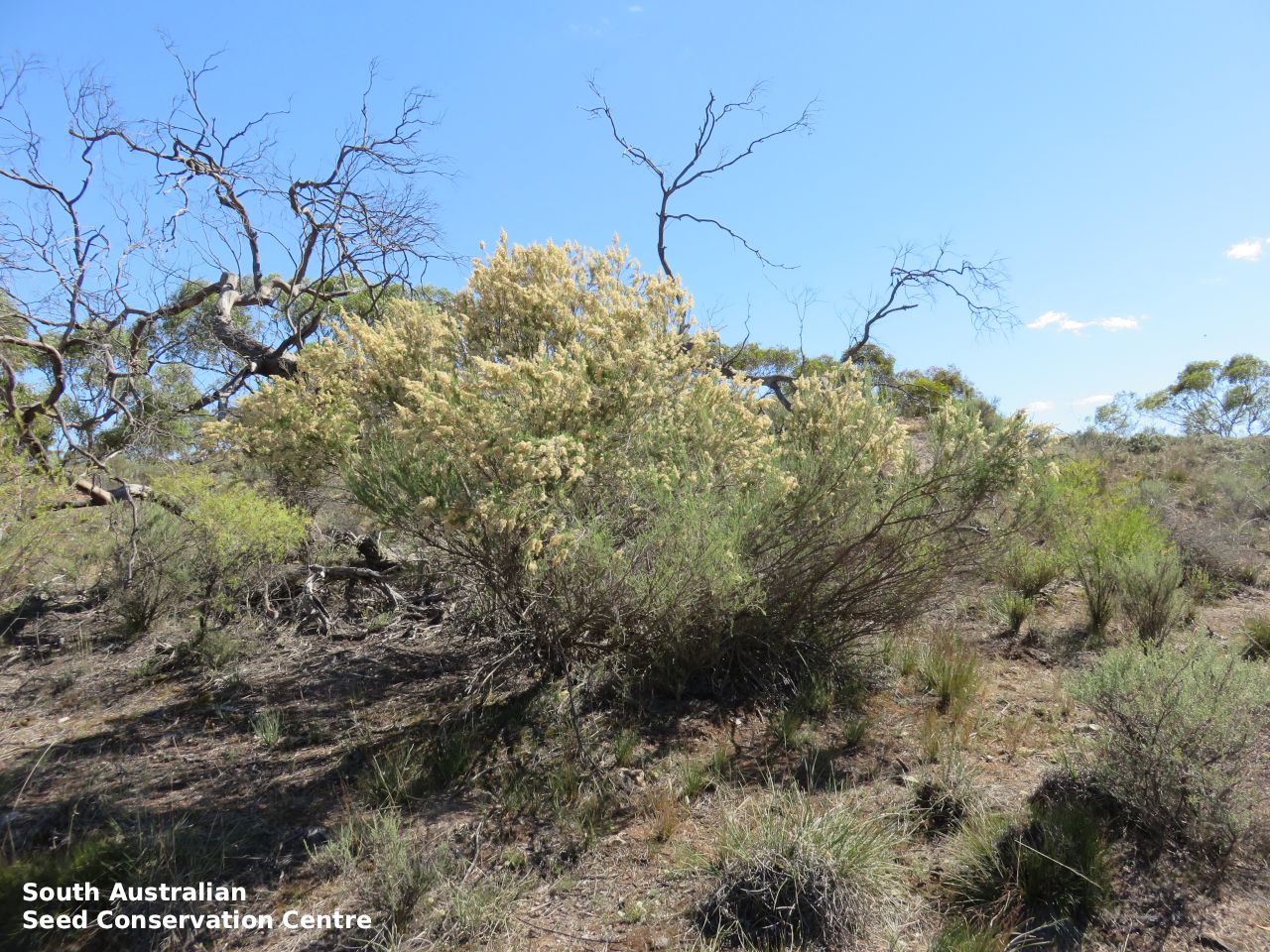
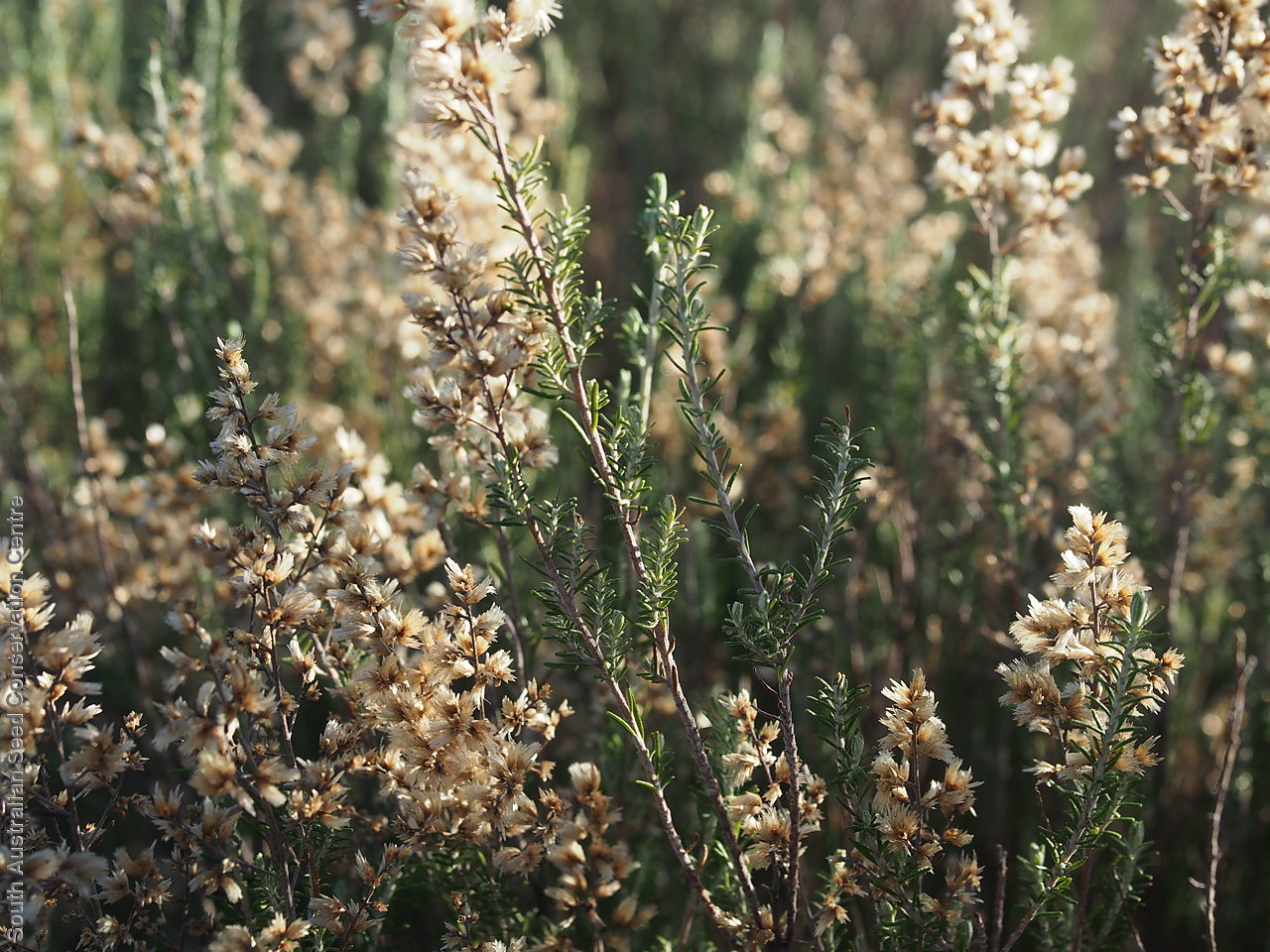
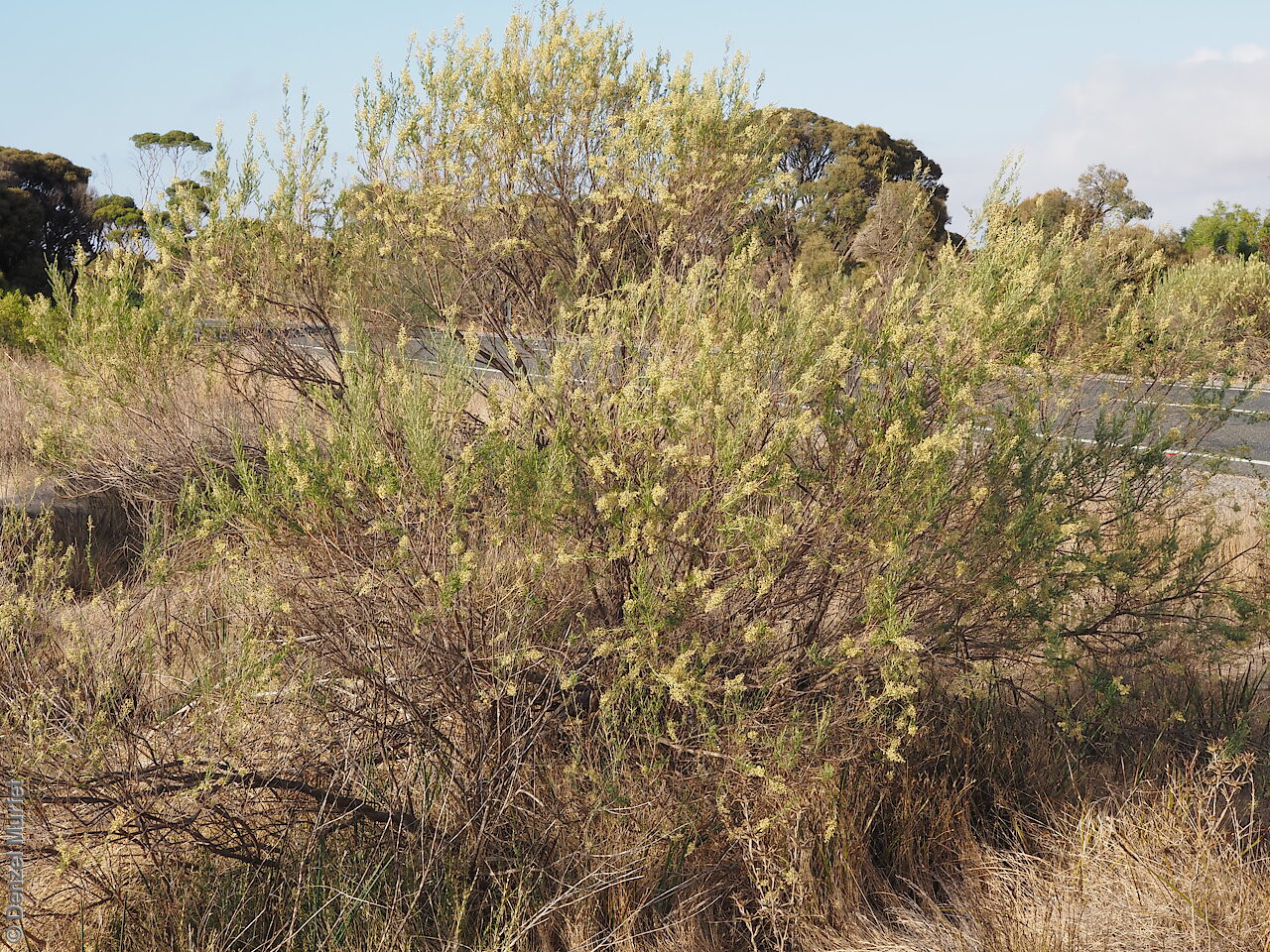

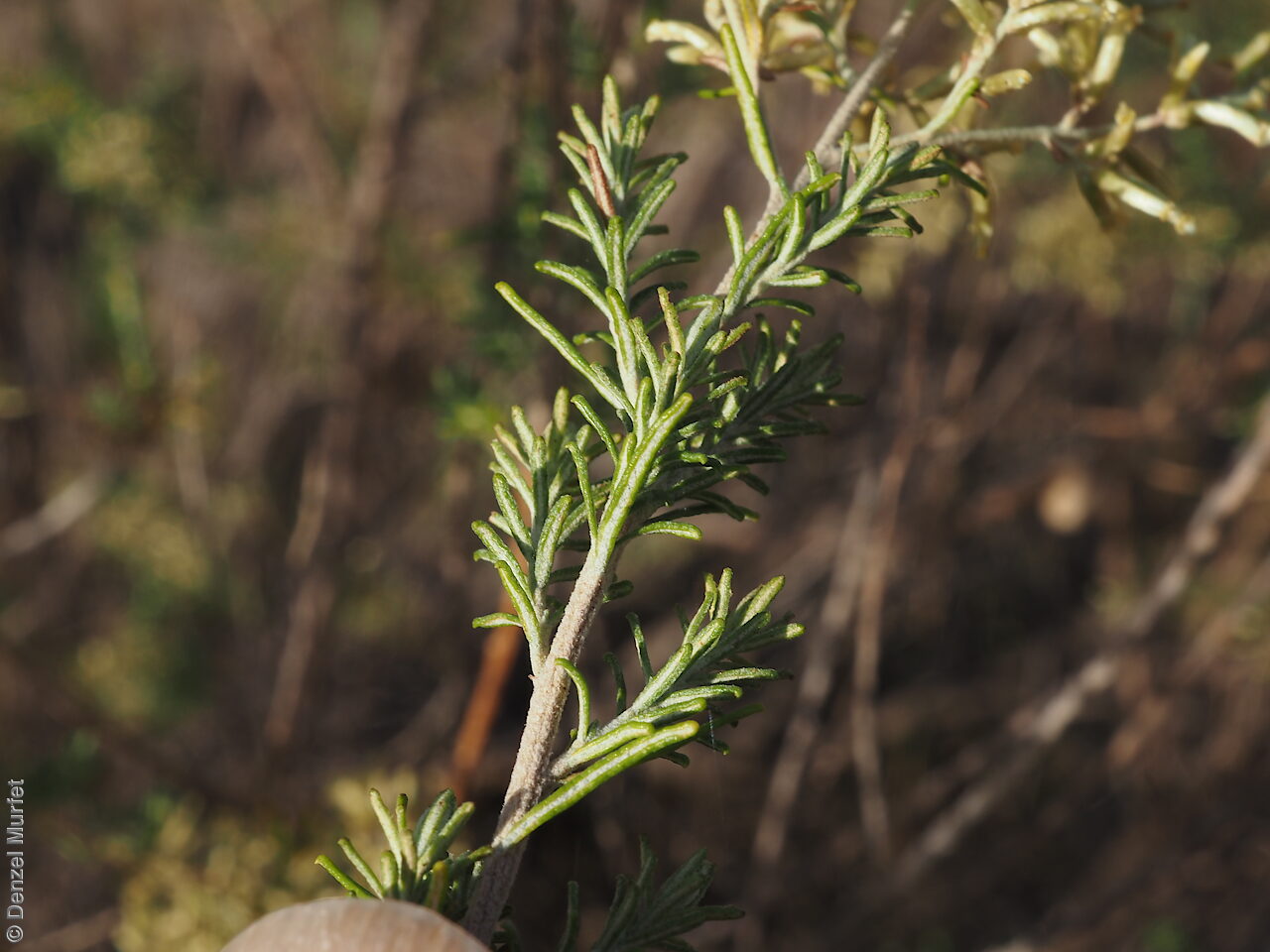

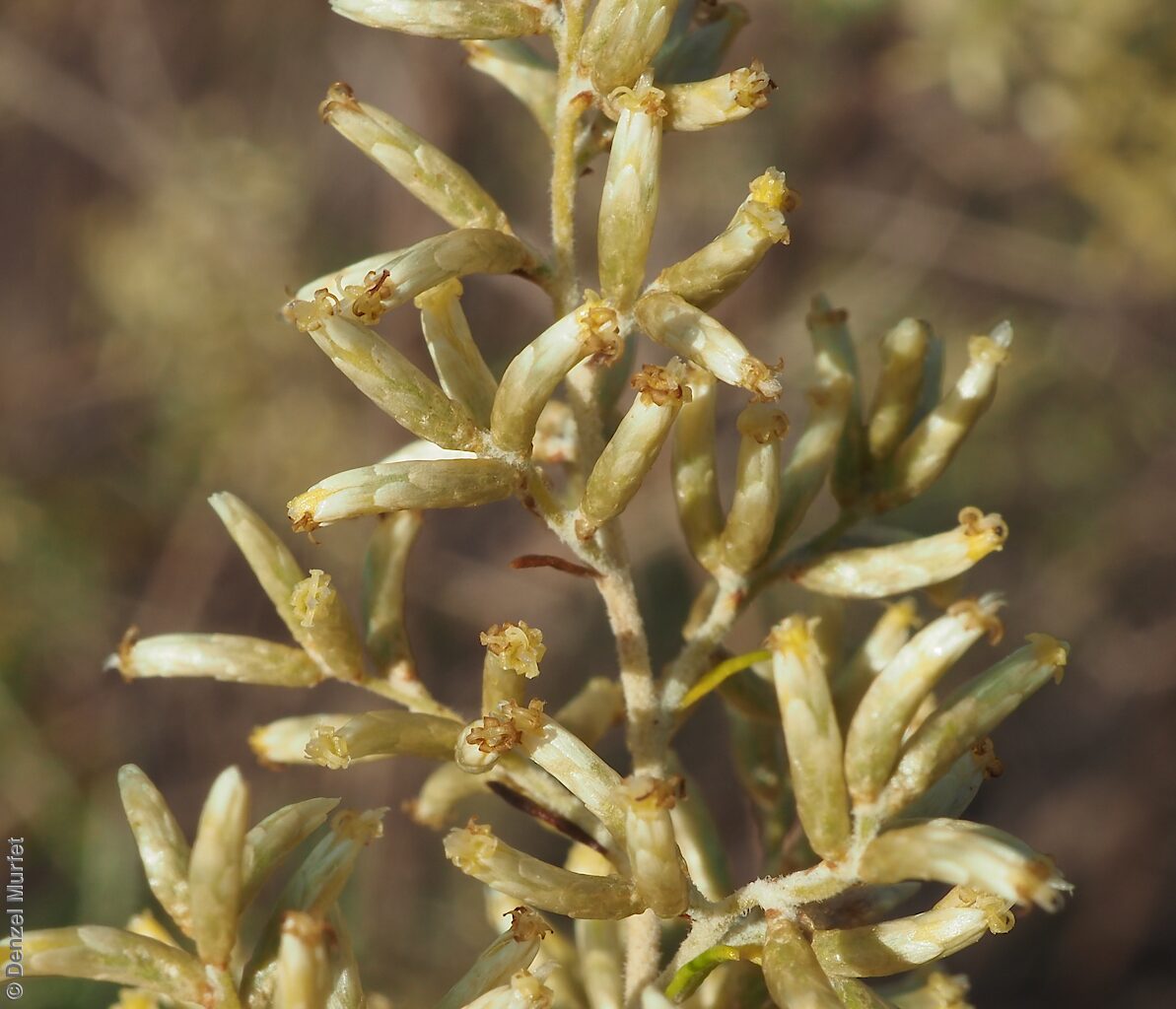



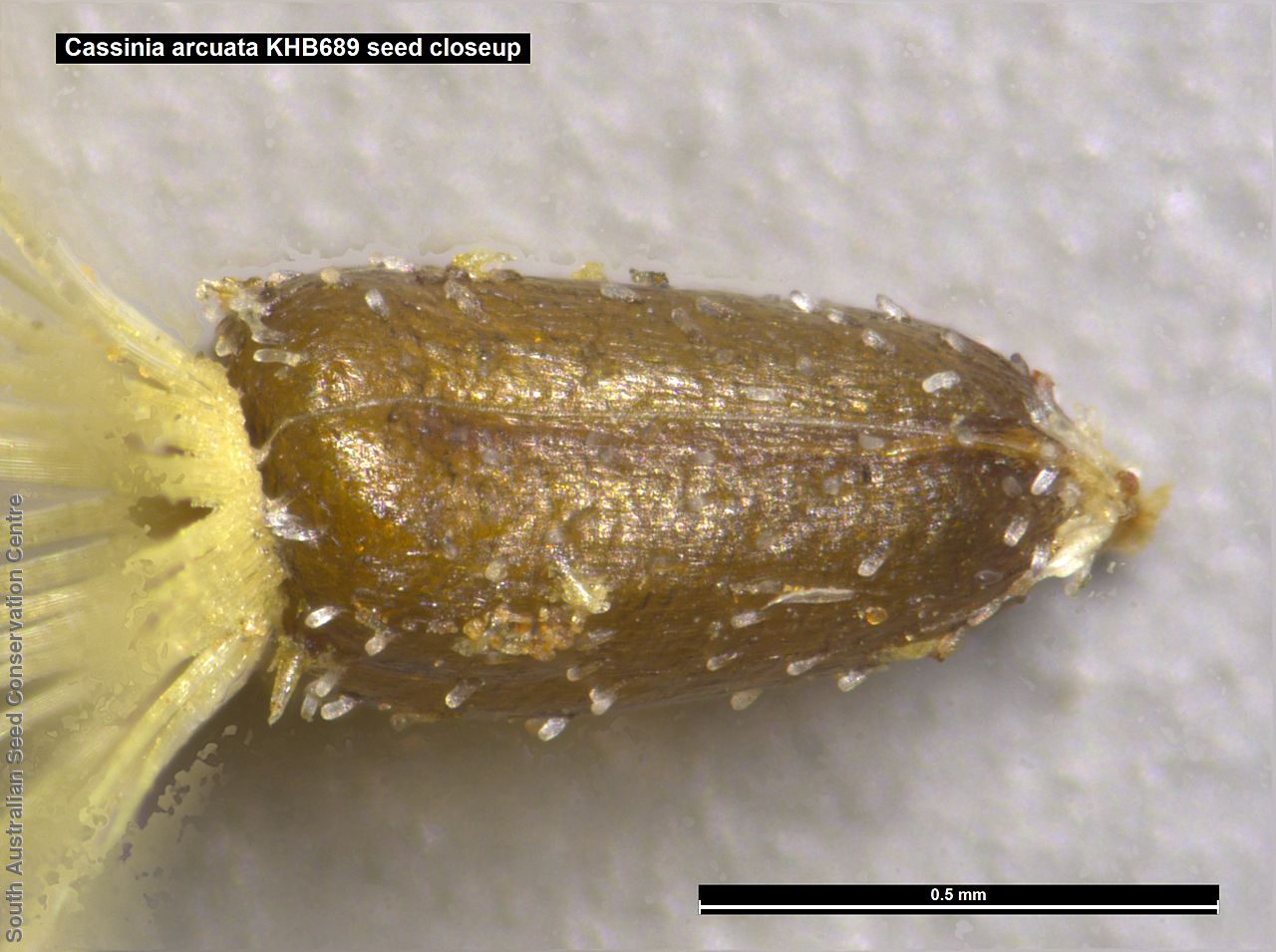
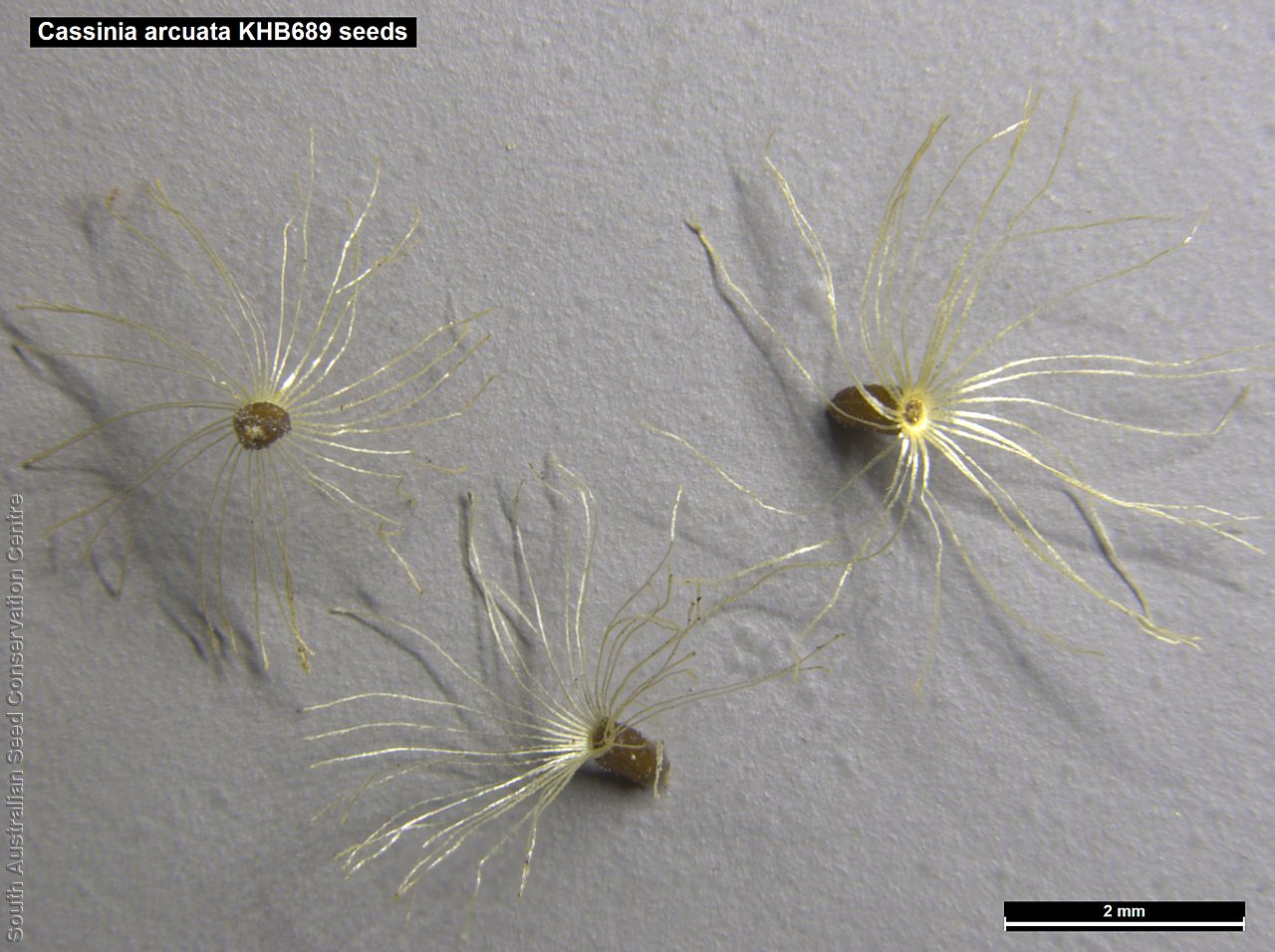


Botanical art
Common names
Drooping Cassinia
Chinese Shrub
Etymology
Cassinia named after Alexandre-Henri Gabriel de Cassini (1782-1832), a French botanist who published extensively on the Compositae. Arcuata from Latin 'arcuatus' meaning curved or bent like a bow, referring to the bowed flowering branches.
Distribution and status
Found in southern South Australia growing on dry, poor ground in mallee and woodland. Also found in Western Australia, New South Wales and Victoria. Native. Common in South Australia. Rare in Western Australia. Common in the other States.
Herbarium regions: Flinders Ranges, Eyre Peninsula, Northern Lofty, Murray, Yorke Peninsula, Southern Lofty, Green Adelaide
NRM regions: Adelaide and Mount Lofty Ranges, Eyre Peninsula, Northern and Yorke, South Australian Murray-Darling Basin
AVH map: SA distribution map (external link)
Plant description
Perennial shrub to 2 m high with a curry-like scent; stems erect, densely branched with branchlets covered in creamy hairs. Leaves spreading, linear, more or less decurrent; obtuse, to 10 mm long and 1 mm wide; upper surface glabrous or subglabrous, green, lower surface with creamy hairs, almost wholly obscured by the recurved margins. Inflorescence a leafless pyramidal spike; dense to loose, erect to drooping, with buff-coloured flowers. Flowering between January and April. Fruits are loose golden daisy heads. Seeds are brown cylindrical seed to 1 mm long and 0.4 mm wide, with long white pappus at one end. Seed embryo type is spatulate.
Seed collection and propagation
Collect seeds between March and June. Collect heads that are matured,golden brown and contain brown seeds. Place the heads in a tray for one to two week to dry. Then rub the heads gently with your hands to dislodge the seeds. Use a sieve to separate any unwanted material. Viable seeds will be small and brown. Store the seeds with a desiccant such as dried silica beads or dry rice, in an air tight container in a cool and dry place. Seeds are non-dormant, viable seed should germinate readily.
| Location | No. of seeds (weight grams) | Number of plants | Date collected | Collection number Collection location | Date stored | % Viability | Storage temperature |
|---|---|---|---|---|---|---|---|
| BGA | 12,000 (1.01 g) | 20+ | 26-May-2012 | KHB689 Flinders Ranges | 1-Jan-2016 | 65% | -18°C |
Number of plants: This is the number of plants from which the seeds were collected.
Collection location: The Herbarium of South Australia's region name.
% Viability: Percentage of filled healthy seeds determined by a cut test or x-ray.